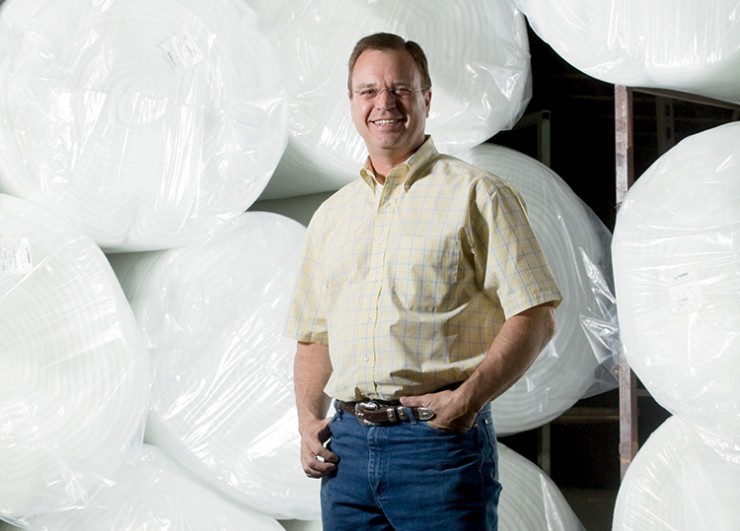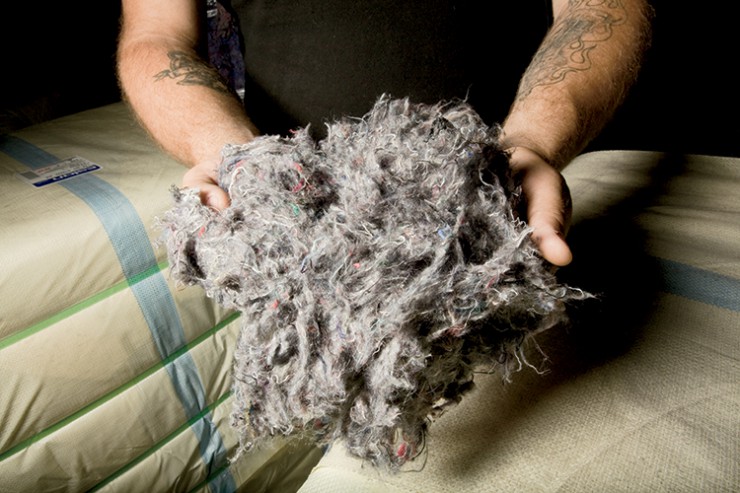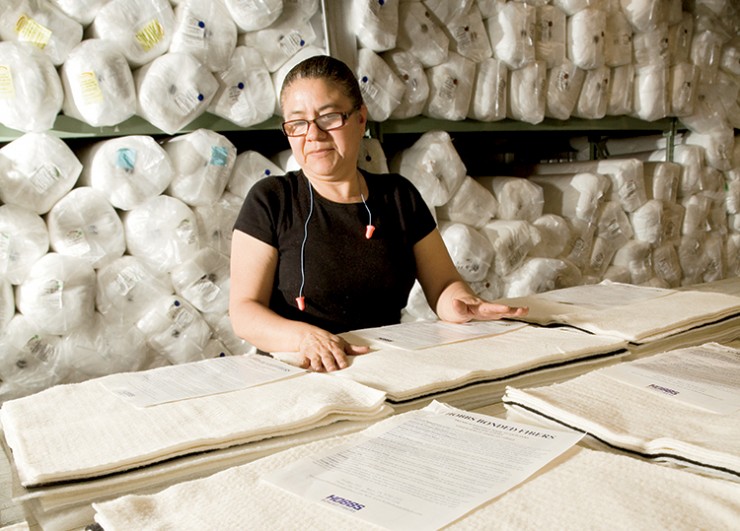Home > Texas > Texas Crops & Livestock > Inventing Opportunities for Texas Agribusiness
Inventing Opportunities for Texas Agribusiness
In partnership with: Texas Department of Agriculture

Christopher Columbus Doty, Schleicher County’s first settler, used shallow wells to provide water for his 4,000 head of sheep. When those wells dried up in the 1880s, the Texas pioneer used his ingenuity to solve the problem. He ordered a drill from Arkansas, bored a 52-foot well and installed a windmill to pump water.
Today’s Texas farmers are following in the footsteps of Texans like Doty and continuing to push for innovation in the industry. Take Buzz Vardeman, a Lubbock County cotton farmer, who invented an eight-row cotton stripper that makes harvest four times faster. He also developed a hands-free, GPS-guided steering system for cotton harvesters, working with John Deere on this and other equipment improvements.
Innovation extends off the farm, as Texas businesses and researchers develop new ways to use Texas-grown products. In Waco, Hobbs Bonded Fibers turns Texas cotton into quilt batting.
“We ship batting to many countries and are the world’s largest cotton batting producer,” says Larry Hobbs, vice president of manufacturing. The company also integrates other Texas-grown products into its craft offerings, like an 80 percent cotton, 20 percent wool batting that’s popular with consumers.
“The craft consumer is looking for high-quality, natural and American-made products,” Hobbs says.

Hobbs also makes products for use in clothing, industry and even military applications. Ongoing consumer trends provide new opportunities.
“We’ve responded to consumer interest in being green and being natural,” Hobbs says.
Ramtect™, a 100-percent-wool insulation for clothing, blends the consumer’s interest in being green with current style trends.
“Apparel manufacturers want insulation that is not as puffy to include in more tailored and layered clothing styles, and wool is a good fit,” Hobbs says.
Hobbs uses cotton shoddy — trimmings from denim manufacture — to make lightweight, sound-reducing insulation for cars. The company holds manufacturing rights to Fibertect™, a dry-wipe developed at Texas Tech University. Used for chemical decontamination, Fibertect™ sandwiches a carbon core between two non-woven cotton layers.
“The cotton can actually capture its own weight in contaminants,” says Bill Neal, vice president of marketing for Hobbs Bonded Fibers.
Protecting The Environment
Both farmers and companies processing Texas farm products use innovation to protect the Texas environment. Hobbs Bonded Fibers reuses cotton trim, grinding it into raw material for industrial fillings and insulations. That keeps it out of landfills and helps the company manage material costs.
Harry Dewit, owner of High Plains Dairy in Friona, is always looking for high-tech ways to conserve water. He uses a micro subsurface drip irrigation system to conserve water use on 420 acres of crops. Dewit has installed miles of high-efficiency, underground irrigation pipeline to water grain and forage crops. In 2009, Dewit was a Dairy Today magazine “Innovative Dairy Farmer of the Year,” and his soil conservation efforts were recognized by the USDA’s National Resources Conservation Service.
High Plains, like many dairies, composts manure into crop fertilizer, with some parts of the compost recycled into cattle bedding.
“I am not usually the first dairy farmer to do something new, but we are always looking to improve our dairy,” Dewit says. He aims to keep the farm’s manure and water in a closed system where nutrients are captured and applied when needed.
Hobbs Bonded Fibers uses a similar principle to recycle byproducts of manufacturing.
“We capture all resins in our resin tanks,” Hobbs says. “Nearly 100 percent of that resin is then reused. We are as committed to safeguarding the environment as we are to using as much Texas cotton and wool as possible.”
That kind of responsible innovation by Texas farms and companies is as old as the state itself.




